Why Sacramento’s Slow Food Revolution Could Be the Game-Changer for Your Health and Wallet in 2024
Ever wondered why slowing down might just be the secret ingredient to better health and a happier planet? Well, from September 26-28, Sacramento—the self-proclaimed “farm-to-fork” capital—was buzzing with a deliciously different kind of energy. Enter the first-ever Terra Madre festival, where the slow food movement took center stage, showcasing not just food but a lifestyle that champions sustainable, local, and honest-to-goodness practices. Imagine walking through wall-to-wall exhibits at the SAFE Credit Union Convention Center, surrounded by passionate farmers, artisans, and chefs, all united by a shared love for food that respects the earth and everyone involved in bringing it to your plate. It’s a refreshing change from the instant gratification we’ve gotten so used to—here, patience really is a virtue, and it pays off in flavor, nutrition, and community spirit. Curious to see how this global festival landed right in California’s backyard, and why thousands from around the world are embracing the slow life? Dive into the vibrant stories and inspiring people redefining how we eat, drink, and think about food. LEARN MORE
The slow food movement arrived September 26-28, at the first-ever Terra Madre festival in Sacramento, California – the “farm-to-fork” capital of America.
Wall to wall exhibitors at the SAFE Credit Union Convention Center (with some outdoor vendors), showed guests all about California’s culinary and agriculture industries, including the slow food movement that places emphasis on sustainable food practices and supply chains. Plus, there were plenty of food and beverage tastings from every category imaginable.
Organizers said there were some tens of thousands of attendees from around the globe.
Prior to this year, the festival has been held in Turin, Italy. When planning this year’s event, California was chosen due to the state’s deep agricultural heritage, thriving restaurant culture, Michelin recognition, and commitment to sustainable, local food make it the natural host.
Sienna Jevremov, head distiller and blender at Widow Jane whisky, was one of the many dozens of exhibitors.
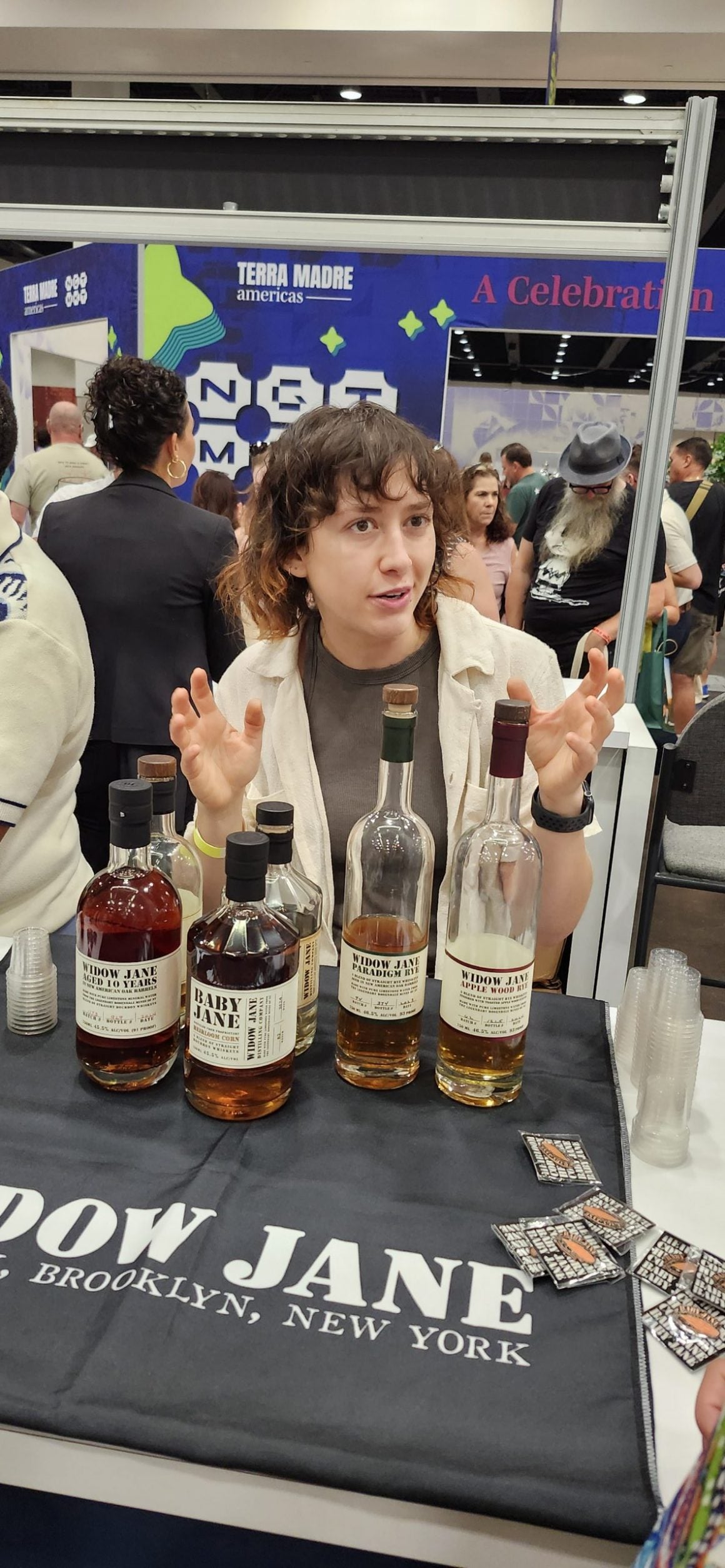
“Terra Madre is this really amazing idea of slow food and slow drinks. We love the idea of working with farmers and the agricultural industry, removing the perception that spirits are created very quickly, in a pharmaceutical environment. We work with many parts of the agricultural worlds in a slow moving way, whether it’s growing the trees, the lumber yards and making the barrels, to growing the corns, the grains and moulding it. Then the long process of sitting and waiting for it,” she told Swagger.
“This is why premium whisky costs so much, because there’s a lot of work that goes into it.”She also explained that the company, in New York, sources as many ingredients locally, with barrels from Kentucky.
Elizabeth Falkner, an award-winning American chef, restaurateur, and food industry leader known for her inventive style and competitive spirit, prepared a halibut dinner for special guests at the event.
She made her mark with acclaimed restaurants such as Citizen Cake and Orson before expanding to New York. Falkner has competed and judged on more than 40 television cooking shows including Iron Chef and Top Chef Masters, received multiple prestigious awards, and was nominated for a James Beard Award. She is also an author, public speaker, fitness advocate, and known for pioneering both traditional and modern culinary arts.
She told Swagger about her feelings towards the slow food movement and how that had impacted what she’s been doing lately, especially at the convention.
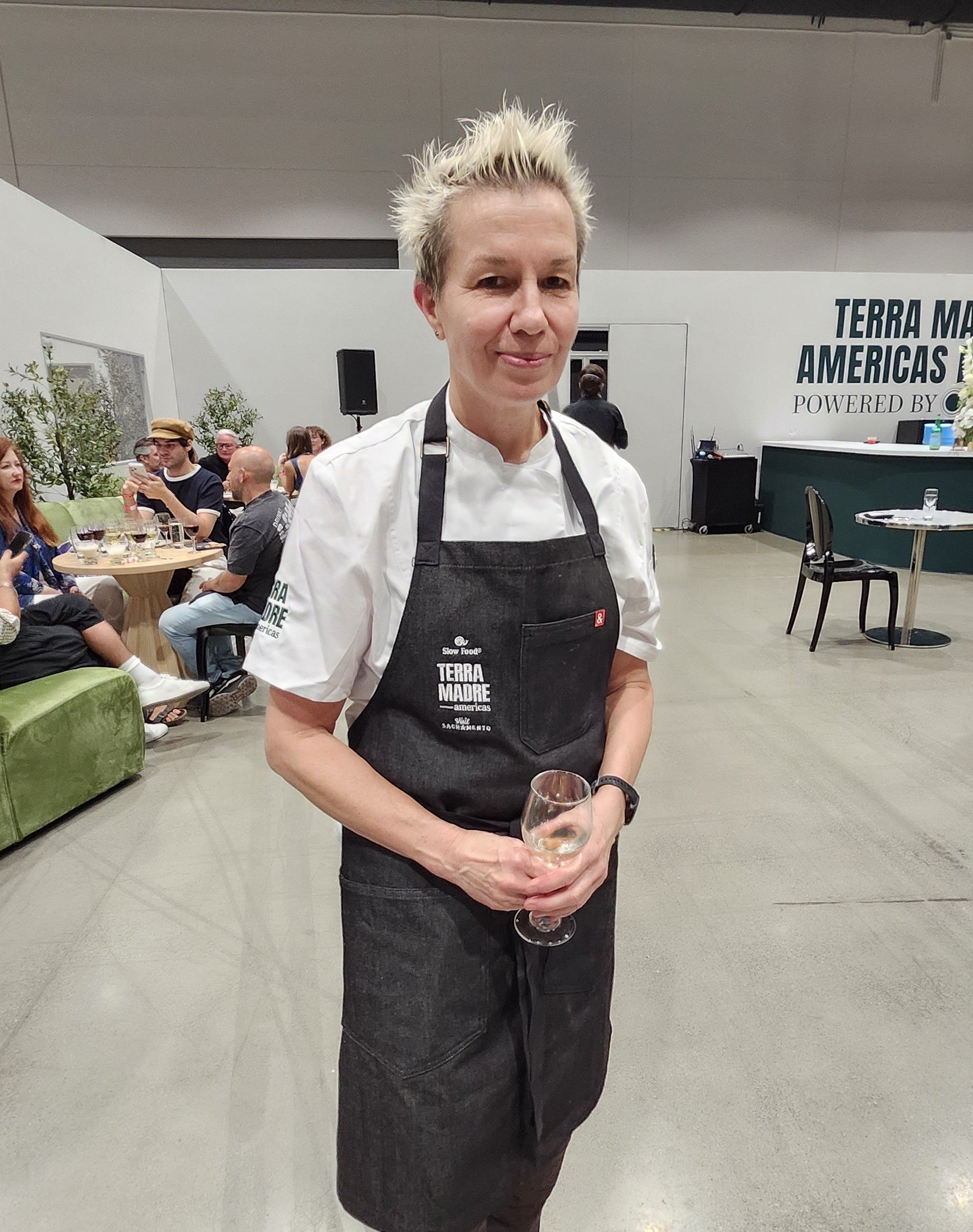
“People always ask me, ‘what’s the hardest thing about cooking?’ And I’m like, it’s actually, fast food, the scariest thing to me,” she said.
“I’m always telling kids that they should eat because it’s good for you, and eat what’s fresh from the farm. They tell me ‘but I want to go to In-And-Out!’ and that’s been my enemy my whole life. When I learned about slow food, I loved that idea of just respect. It’s the opposite of fast food.”
As her first time at Terra Madre, she said it was “so amazing” having met “so many different artisan makers and growers and farmers and initiatives, all the things that I’m always studying and supporting.” Of particular interest to her were the array of hot sauce makers.
On that very topic, San Diego-based Dave Soloway was an exhibitor from Proscribed Burn Sauces. “We’re really into using local products,” he told Swagger of the ethos of Terra Madre. “It’s fun to just collaborate with other farmers and other sauce makers here. Everyone’s really excited to try local products and try different flavored sauces.”
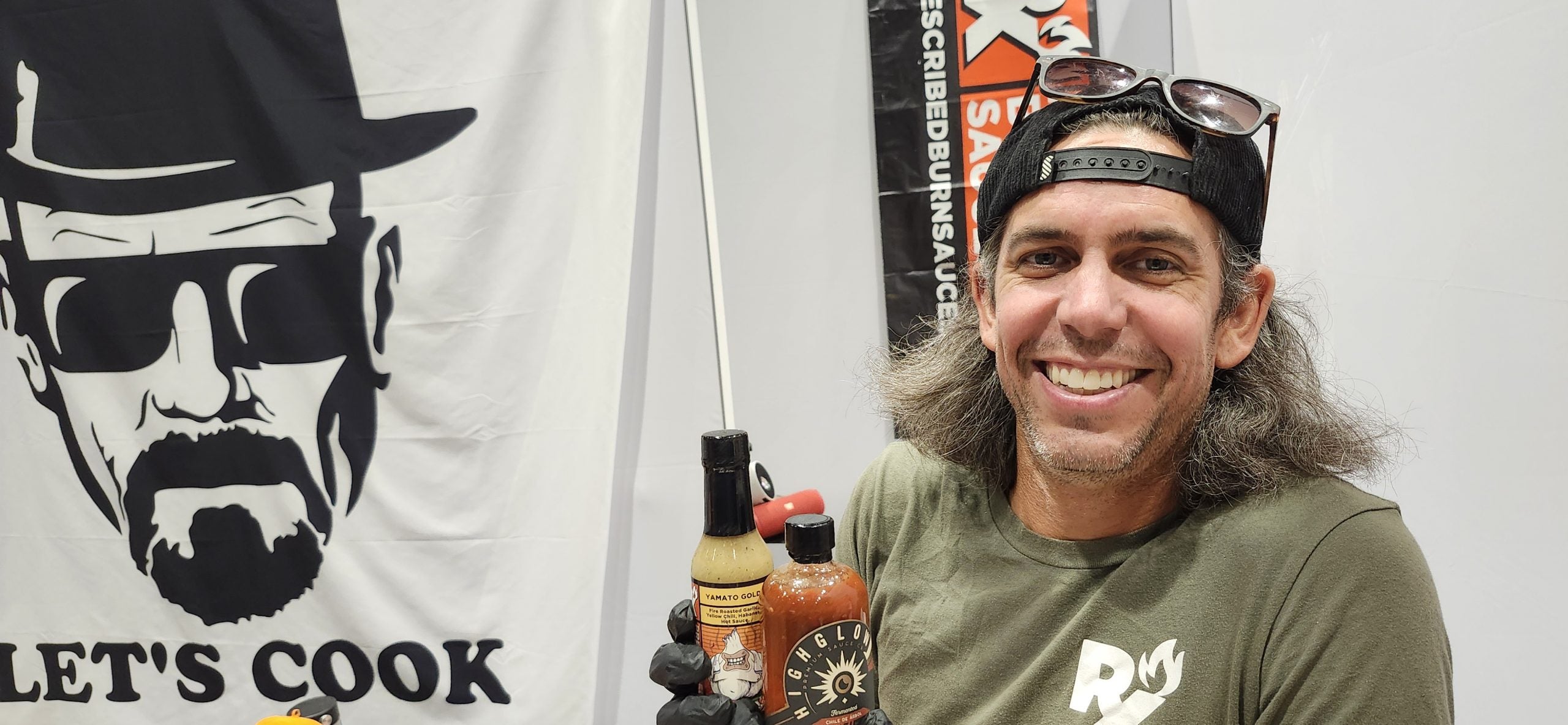
Kaitlyn Shipley, social media and events coordinator of Andis Wines, told Swagger “we like to make our wines in a traditional old-world organic style” and was there to impart the message to conference-goers of the importance of buying local.
James Hughes of Mortal Minds Coffee in New Jersey told Swagger that he exhibited because “we care a lot about the farms in which we source. We’re proud there’s a great need for consumers to consider the farmers that are creating the drink. We’re on a mission to educate people about process of sourcing, of growing, and roasting the best coffee as possible.”
Nicholas Cox, the chief roaster of Mortal Minds, said: “in our area in New Jersey we’re about thirty minutes outside of Philadelphia, and there aren’t a lot of places in our area providing consciously-sourced coffee. We just really want to shape the culture of coffee from fast paced to a conscious appreciation that coffee is – the story of how coffee is grown.”
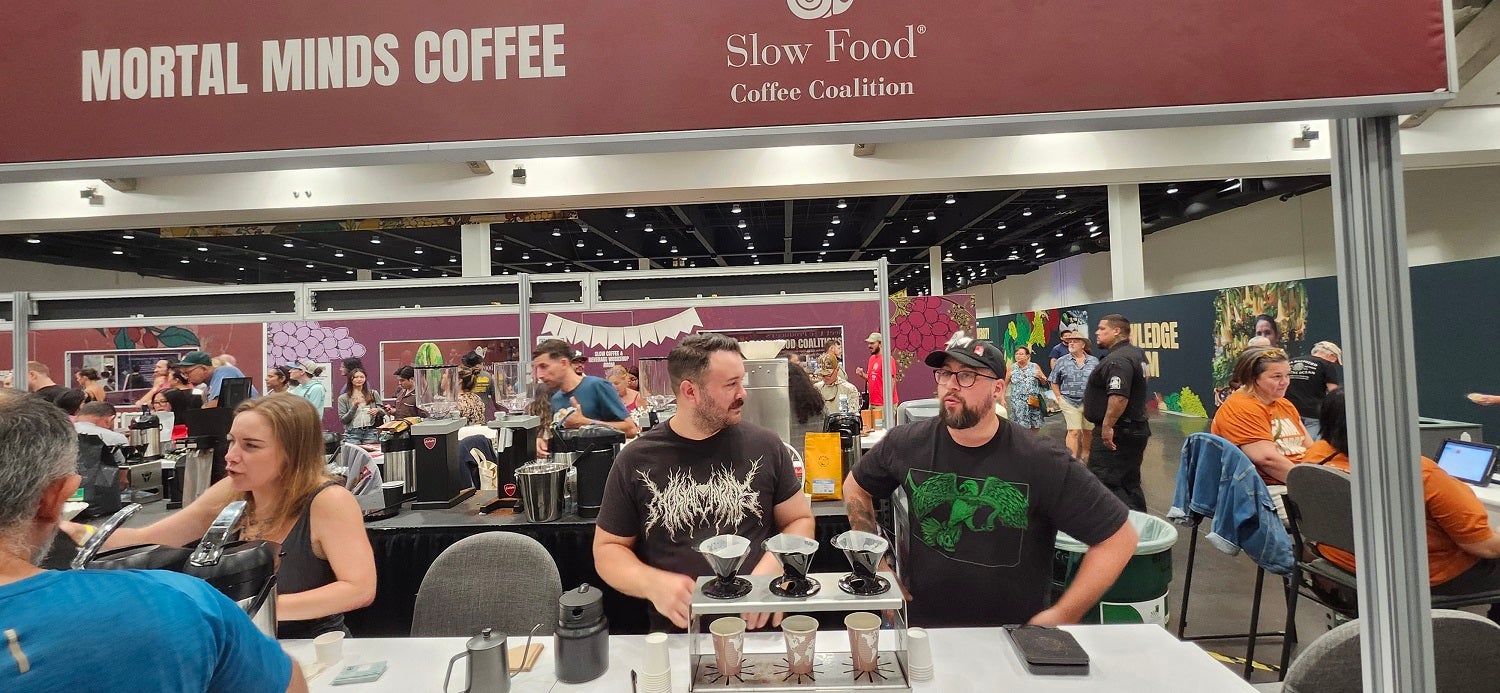
Noelle Richards, along with other members of her family, run a ranch in Yuba County, purchased by her great-grandfather in 1941, where she, and her brother and sister took it over about a decade ago. They began a company called Richard’s Grass Fed Beef, based on the idea of regenerated soil, that removed the need for pesticides and fertilizers, and she said the grass-fed animals are healthier as a result.
Her brother Tom said the company is “leading the charge in the regenerative space” also touting what they referred to as a “slow meat pavilion” – which he describes as “nurturing the animals and letting them be healthier.”
In the 1950s, he said most steers were harvested at about four years old, and in response to high demand, there was a rise in effort to “get it in and out of that feedlot as fast as possible to save money and boost profits.”
“Well, what happened over time is those animals started to get sick. They had to be fed antibiotics, and then they weren’t growing fast enough. So then they added growth hormones to get them to grow faster, and all these different food inputs that cattle aren’t supposed to eat and don’t eat naturally. And they just started doing more and more and more to these poor cows. Today, most animals that you will consume and conventional meat are anywhere from 18 to 24 months old.”
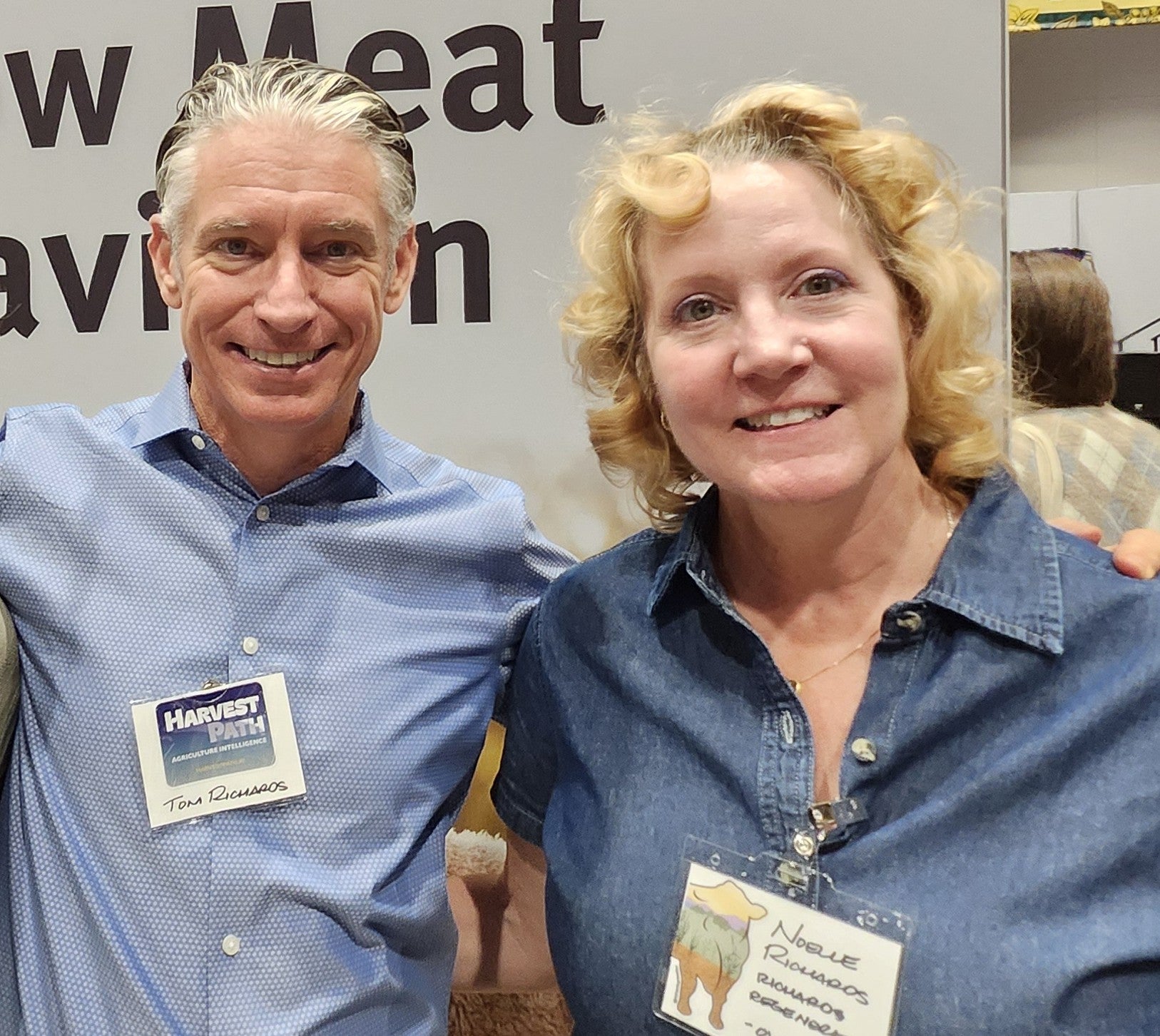
The conventional meat system, he asserted, “is not about the health of the animal or health of the soil. It’s all about, how fast do you put pounds on that animal so we can slaughter it and sell it. And then on top of that, the measuring stick that they use, the whole grading platform, choice, prime, all of that select. It’s not based on on nutrients or any health aspects of that product. It’s all based on fat.”
In response, his family company has decided to do things “slower and better. It’s more healthy for the environment, more healthy for the animal, and more healthy for the people.”
The Slow Food movement’s arrival in Sacramento marked more than just a festival—it served as a vivid demonstration of how a community can rally around local farmers, artisan producers, and sustainable food practices to shape a healthier, more thoughtful food culture for the future.
Participants and exhibitors repeatedly illustrated the deep connections fostered when food production, preparation, and enjoyment are slowed down, allowing respect for ingredients, soil, animals, and people to take center stage.
In a world often driven by instant gratification, the commitment shown at Terra Madre suggests that more communities will soon rediscover the pleasures and benefits of “slow” living—from savoring a thoughtfully crafted meal to caring for the land that makes it all possible. Sacramento, now a leader for the slow food movement, reminds us that good things truly do take time.
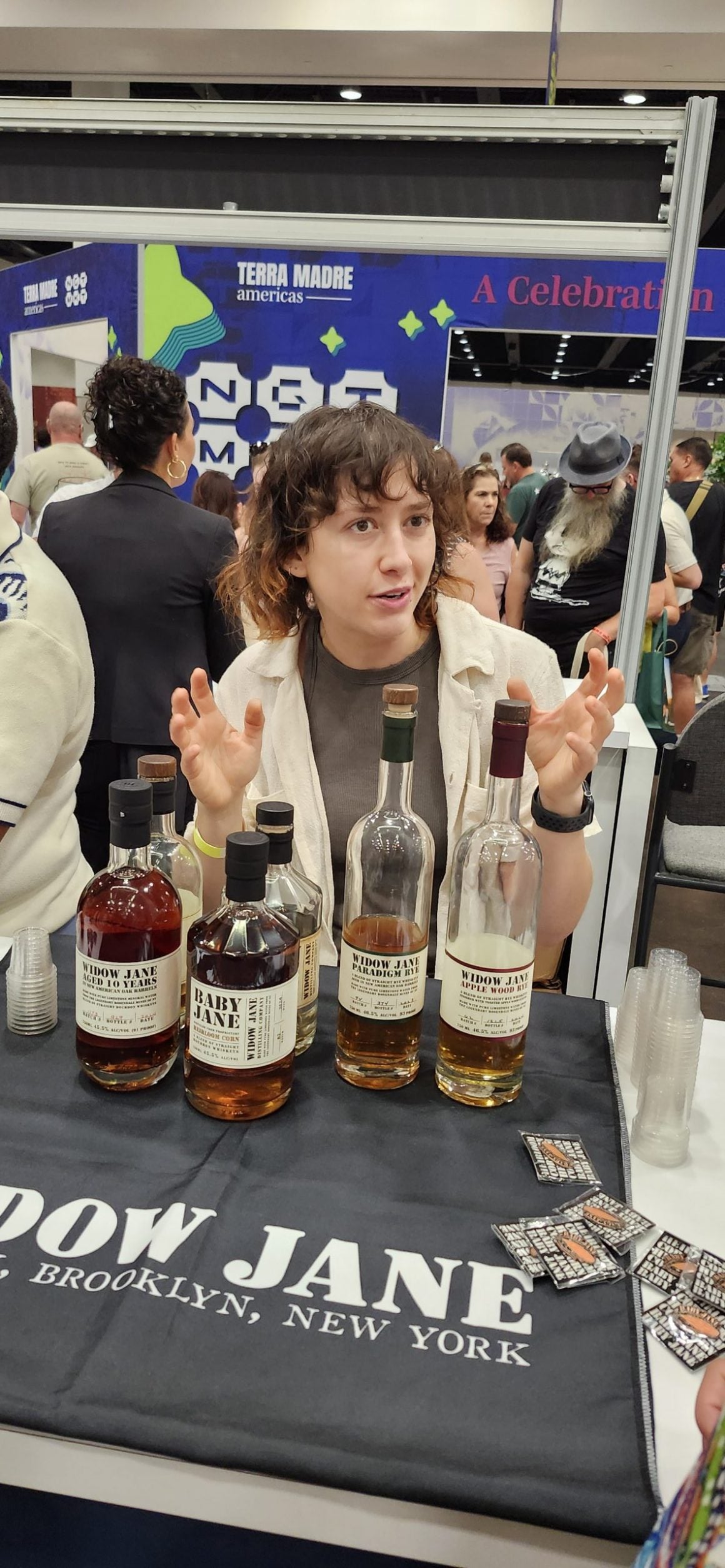



















Post Comment